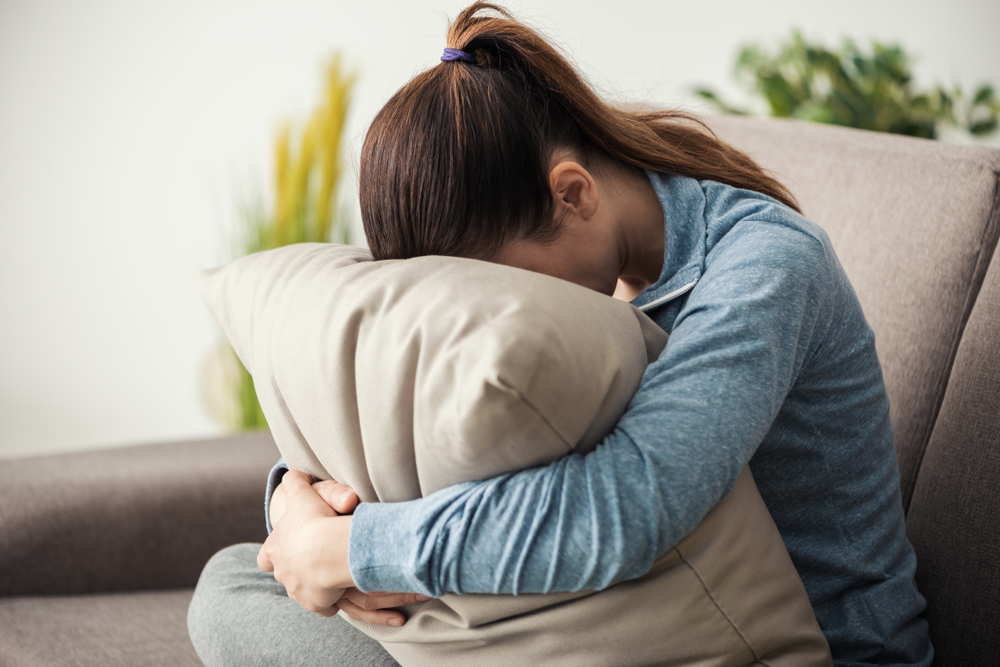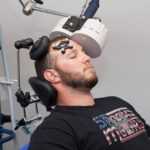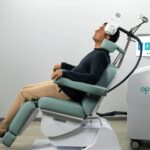
Can Depression Come Back After Treatment?
Depression is one of the most common mental health conditions that affects how people think, feel, and function in daily life. With proper therapy, medication, and lifestyle changes, many people recover fully from depression and return to leading happy, fulfilling lives. However, a common concern among patients and their families is: “Can depression come back after treatment?”
The answer is yes, depression can come back even after successful treatment. But the good news is that with ongoing support, self-care, and early intervention, it is possible to manage and prevent future episodes.
At Karma Doctors & Associates, a trusted center for Depression Treatment in Palm Springs, specialists help patients not only recover from depression but also build resilience to reduce the risk of recurrence.
Understanding Depression
Depression is more than just feeling sad or low — it is a serious mental health condition that affects how a person thinks, feels, and behaves. It can lead to a persistent sense of sadness, loss of interest in activities, fatigue, sleep problems, and difficulty concentrating. Unlike temporary mood changes, depression can last for weeks or months and may interfere with daily life, relationships, and work.
There are several types of depression, including:
- Major Depressive Disorder (MDD): Characterized by long-lasting sadness and lack of interest in normal activities.
- Persistent Depressive Disorder (Dysthymia): A mild but chronic form of depression that lasts for years.
- Bipolar Depression: Occurs in people with bipolar disorder during depressive episodes.
- Seasonal Affective Disorder (SAD): Depression that appears during specific seasons, usually winter.
Depression is episodic, meaning it can occur in episodes separated by periods of wellness. This is why it’s possible to feel fine for months or even years — and then experience a relapse.
Can Depression Come Back After Treatment?
Yes, depression can come back after treatment, even if the person had completely recovered. Studies show that around 50% of people who experience one episode of depression are likely to have another one in the future. For those with multiple past episodes, the risk of recurrence increases further.
It’s important to note that a relapse is not a failure. Depression is a medical condition that can return due to biological, psychological, or social triggers. Recognizing the early warning signs and acting quickly can help prevent a full-blown depressive episode.
Why Does Depression Come Back?
Depression can come back after treatment due to a combination of biological, psychological, and lifestyle factors. Understanding these causes can help prevent relapse and ensure long-term emotional stability.
1. Biological Factors
Some people have a natural or genetic vulnerability to depression. Chemical imbalances in the brain involving serotonin, dopamine, and norepinephrine can resurface even after treatment. Hormonal changes due to conditions like thyroid imbalance, pregnancy, or menopause may also contribute to a relapse. Chronic illnesses such as diabetes, heart disease, or chronic pain can further increase the risk.
2. Incomplete Treatment
One of the most common reasons depression returns is stopping treatment too early. When individuals discontinue therapy or medication as soon as they feel better, unresolved emotional issues and negative thought patterns may remain, leading to a recurrence. Long-term follow-up and consistent therapy are crucial to sustaining recovery.
3. Stress and Life Changes
Major life stressors—such as job loss, relationship problems, trauma, or financial strain—can act as triggers that bring back depressive symptoms. Even small but persistent daily stresses can accumulate over time, gradually weakening emotional resilience.
4. Lack of Support
A strong support system is vital for emotional recovery. Isolation, loneliness, or lack of understanding from family and friends can make it difficult to manage mood changes and can contribute to relapse. Having access to a supportive therapist or community can make a major difference in maintaining mental health.
5. Unhealthy Lifestyle
Poor lifestyle habits such as inadequate sleep, lack of exercise, unhealthy eating, or substance use can destabilize mood and reduce the brain’s ability to regulate emotions. Regular exercise, mindfulness, and a balanced diet play an important role in preventing recurrence.
What Increases the Risk of Recurrence?
Certain factors make it more likely that depression will come back:
- History of multiple depressive episodes
- Early age of onset
- Ongoing anxiety or other mental health issues
- Family history of depression
- Chronic medical illnesses (e.g., diabetes, heart disease)
- Poor medication adherence
- Unresolved trauma or grief
- Lack of ongoing therapy or follow-up care
Understanding these risk factors can help you and your therapist create a long-term maintenance plan.
Preventing Depression from Coming Back
Although you can’t always control whether depression returns, many proactive steps significantly reduce the risk.
1. Continue Treatment
Even after symptoms improve, continue with your prescribed medication and therapy. Abruptly stopping treatment can cause a relapse. Always consult your doctor before making changes.
2. Stay in Therapy
Cognitive Behavioral Therapy (CBT) and other psychotherapies help you recognize negative thought patterns and develop coping skills. Continuing therapy even after recovery helps you stay emotionally strong.
3. Monitor Your Mood
Keep track of your mood changes using journals or apps. This helps detect early warning signs and take timely action.
4. Manage Stress Effectively
Practice relaxation techniques such as deep breathing, meditation, or yoga. Learning to manage stress prevents emotional burnout.
5. Build a Strong Support Network
Stay connected with family, friends, or support groups. Sharing your feelings helps relieve emotional burdens.
6. Adopt a Healthy Lifestyle
- Get regular exercise
- Eat a balanced diet
- Sleep 7–8 hours each night
- Avoid alcohol and drugs
7. Follow Up with Your Doctor
Regular visits to your psychiatrist or therapist ensure ongoing stability and early detection of any returning symptoms.
Conclusion
Depression can indeed come back after treatment — but it doesn’t have to control your life. Understanding the causes, recognizing early signs, and staying committed to long-term care make a huge difference. Recovery from depression is not a one-time event but an ongoing journey of self-awareness and resilience.
If you or a loved one is struggling with recurrent depression, remember that help is available. Karma Doctors & Associates offers compassionate, personalized Depression Treatment in Palm Springs to help you regain control and live a fulfilling life — free from the shadow of depression.
Frequently Asked Questions
1. Can Depression come back after treatment?
Yes, depression can return even after full recovery. However, with continued therapy, medication, and self-care, the chances of relapse can be minimized.
2. Why does Depression come back after years?
Depression may return due to stress, life changes, hormonal fluctuations, or genetic vulnerability. Even if you’ve been symptom-free for years, it’s important to maintain healthy habits and regular check-ins with a therapist.
3. Does Depression come back after stopping medication?
Stopping antidepressants too soon or without medical advice can trigger relapse. Always taper off medication under a doctor’s supervision.
4. Can Depression go and come back repeatedly?
Yes. Recurrent depression is common in some individuals, but with long-term care and therapy, episodes can be managed effectively.
5. How can I prevent Depression from coming back?
Stay consistent with your treatment plan, manage stress, get enough sleep, exercise regularly, and maintain strong social connections. Regular therapy sessions also help keep your mental health in check.
6. How long after treatment can Depression return?
It varies — depression can return within months or even years. Regular follow-ups and mindfulness about your emotional health reduce this risk.



